
As you might guess, I have a LOT of thoughts about the plot and costumes of Marie Antoinette (2022), the Canal+ series about the famed 18th-century French queen that’s just now airing in the U.S. on PBS. Created and written by Deborah Davis, who wrote The Favourite (2018), the series attempts to show the real story in a specifically feminist lens. You KNOW I needed to be all over it, given how much the 18th century and Marie Antoinette specifically is my jam. I’ve already done one post on the hair, specifically Marie Antoinette’s hair, as well as a super long one on the plot and the costumes (minus the hair). Now, I need to go back to hair and wigs, because there are a whole lot of other characters who need discussing.
As longtime readers may know, I’ve done enough research into the history of 18th-century hair/wig styling and worked out my own recreations, that I wrote a book, 18th Century Hair & Wig Styling: History & Step-by-Step Techniques. The book has been out of print for several years, but I’ve finally gotten organized enough to do a second printing, which will come out in July 2023. If you’re interested in the why’s and how’s of 18th-century hair and wigs, the stylistic differences of different eras, and/or how to recreate these hair/wig styles taking advantage of modern products, you should know that I’m offering a discount on presale orders up until the book is released (you’ll save $15, and if you live outside of the U.S., you’ll also save $10 on shipping).
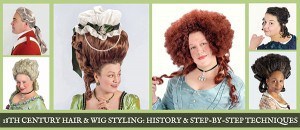
Now, let’s get into the hairstyles and wigs worn by the other characters in the series! Because they’re not great! And I’m not even going to get into the lack-of-powder issue.
The Comtesse du Barbie Barry
Guys, I hated du Barry‘s hair. SO MUCH. FIRE OF MANY SUNS. Again, like Marie Antoinette, it was nicely styled — no crappy “something died on her head” or face-eating wigs. But her ash blonde hair with blonde highlights, spiral curls, and way too much hair down just made her seem like the Legally Blonde of the 18th century.








The Comtesse de Provence
No, the comtesse wasn’t a beauty, but Marie-Antoinette’s sister-in-law also gets some weird-ass hair.




The Princesse de Lamballe
Lamballe starts off great, but goes in a weirrrrd direction. Literally.



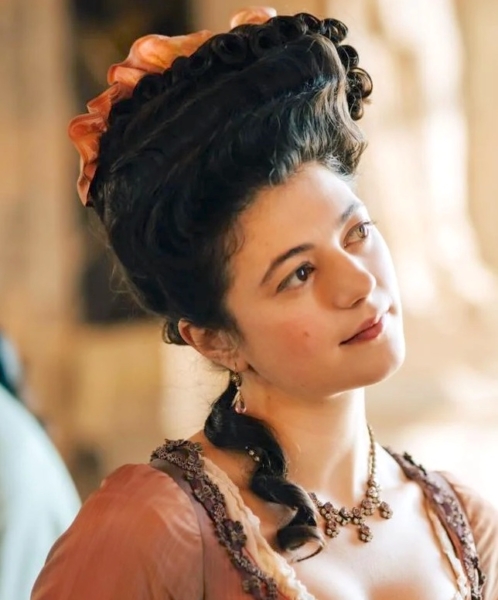
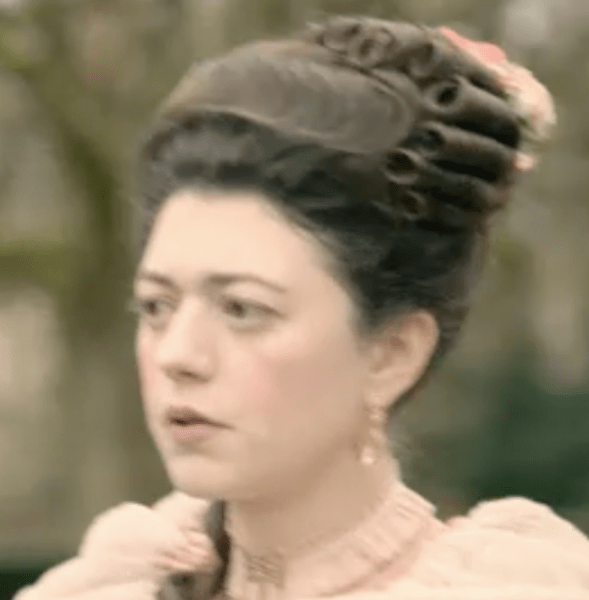



The Duchesse de Polignac
Of all the ladies, the duchesse has the most historically accurate hair. Which is why I get annoyed, because clearly 1) they know what the hair should look like, and 2) they know how to achieve it, 3) they just choose not to.

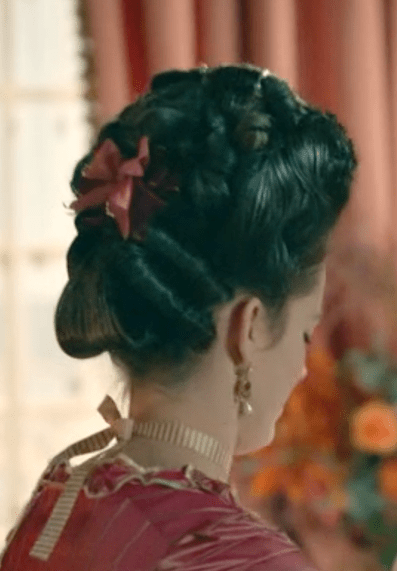





Louis XV
Yes, let’s discuss the boys! Because they got some things right, and some things wrooooooong. Let’s start with King Louis XV:






Louis XVI
I’m not even going to talk about his unstyled hair in the first few episodes. Once he finally figures out how to bathe/operate a comb, however:




The Duc de Chartres
He at least had no derpy center parts, although they accomplished that by leaving his hair long and pulling it all back.




The Comte de Provence
He probably had the best men’s hair, in that his side rolls WEREN’T doing double duty as ringlets/queue. Which means, THEY KNEW WHAT TO DO AND HOW TO DO IT ON EVERYONE ELSE. They just chose not to.


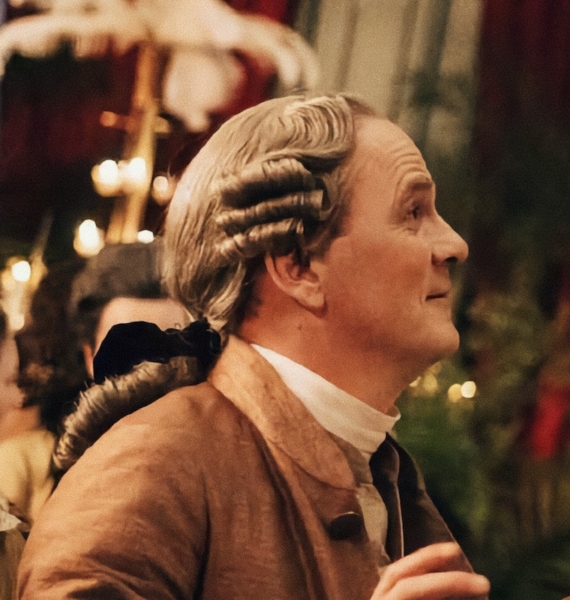
The Chevalier de Saint-Georges
This real-life musician is portrayed as super fashionable and flamboyant, and his hair matches. I’m actually glad they decided that just having him be Black wasn’t enough to make him stand out. On the other hand, his hair is total WTFrock.




Did the hair in Marie Antoinette (2022) make you twitch too?










It looks like they also crimped the Duke de Chartres (the future Philippe-Egalite) hair. I also disliked Madame du Barry’s hair. I guess they were going for a, ‘she’s a mistress, she’s wild and free,’ hairstyle.
Apparently the Duc de Chartres has also pioneered the 90s (but not the one from 200 years ago) crimper action. I feel like he just needs some plastic pink and purple dazzle beads and he’d be set!
Am I wrong to assume this was also not a Thing?
I’m still scratching wondering why if they could get it right with Polignac and Lamballe before she was mimicking the Leaning Tower of Pizza, why couldn’t they do it for the others.
Also they made a movie about the Chevalier St Georges. Will you review?
I wish one day that someone actually make the insane 1770´s hairstyle (like in Lamballe’s portrait here)…
…
….
I was about to make a reasonably intelligent comment, but was distracted by all the pictures of pretty ladies – dear me, but this show benefits from the lovelies!
Right, brain back in gear, haze of lust diminished – could Madame/the Duchess of Provence have been given greenish hair powder to hint at her rather toxic influence? (Or at the very least, to evoke the toxic nature of her marriage to Monsieur).
Also, why is it that in a gallery of lovely ladies the one who sets my heart pitter-patting the one most likely to cut my heart out with a spoon? (Presumably because chasing Lamballe would be like a skunk confusing a cat for his lady-love, the Polignac would demand I share, I’m not rich enough for Du Barry and it’s genuinely possible I could take Monsieur in a fight).
On a less serious note, I wonder why the future Charles X has been excised from the plot?
The Chevalier de Saint-Georges is the 18th century version of Cat from Red Dwarf is what I’m getting from this.
I’m glad you see it too!
Thank God I’m not the only one…
The actor playing him in Chevalier, said he modeled the character on Prince. Not sure how I feel about that.
I came here to say this.
I thought the same thing!
I bet they didn’t even use hot water on those wigs!
Here’s a page with an actual hairstyle with a ship, worn at Louis XVI court. It’s amazing that they’re actually toning down the hair, my guess is that otherwise we’d see nothing else.
https://colonialquills.blogspot.com/2017/04/big-hair-of-1770s-decorations.html
That said, I love this show, some errors in hair and historical accuracy notwithstanding, it gets the idea across and is great fun to watch.
Whups my link was to a modern day recreation of the ship hairdo. The did have them though, to commemorate a maritime battle victory.